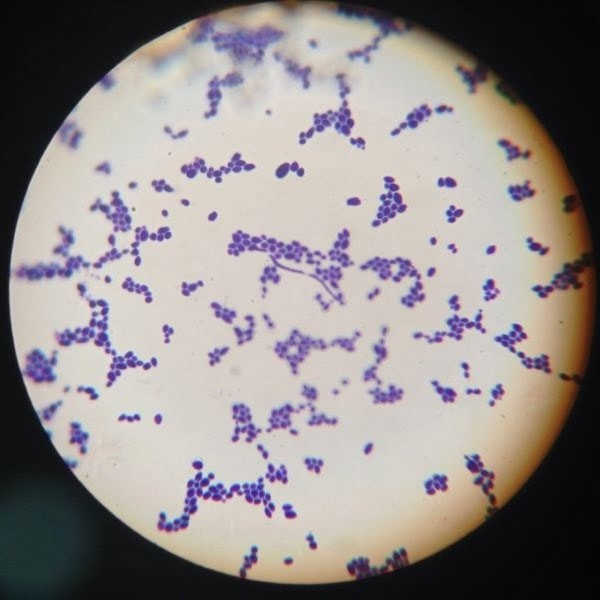Could Synbiotics Help Gestational Diabetes?
Science continues to confirm a role for the gut flora during pregnancy for the general health of mother and baby; one of the most recent studies has now focused on the use of what they call ‘synbiotics’ (the combination of probiotics and prebiotics) to help prevent gestational diabetes.
The findings of a recent study1, led by S. Ahmadi, will be published in the British Journal of Nutrition, and add extra weight to argument that the health of the intestinal flora is a key consideration in pregnancy, now potentially for the prevention of some associated health issues.

Gestational diabetes mellitus (GDM) may affect up to 9% of pregnant women, and results in elevated blood glucose levels. It’s thought that in some individuals, the body is unable to produce enough insulin to cope with the additional demands of pregnancy; risk factors include a family history of diabetes, a personal history of gestational diabetes in previous pregnancies, a body mass index (BMI) of over 30, or being of Asian, Chinese, African-Caribbean or Middle Eastern descent2.
Clinical Trial Shows Improvement in the Symptoms of Gestational Diabetes
Researchers said that the aim of the latest randomised, double-blind, placebo-controlled trial was “to determine the effects of synbiotic supplementation on markers of insulin metabolism and lipid profiles in GDM patients”. During the trials, seventy patients aged 18-40 years who had been diagnosed with GDM were split into two groups. In the first group some subjects were given a placebo capsule for six weeks, whilst those in the synbiotic group were given a capsule containing L. acidophilus, L. casei and B. bifidum strains, (2×109 colony-forming units/g each) plus 800 mg inulin for 6 weeks. To monitor the effects, two fasting blood samples were collected, one at the beginning of the trial and another at the end of week six.
The results indicated that, compared with the placebo group, the synbiotic group experienced positive and measurable improvements in insulin metabolism and sensitivity, triglyceride levels and VLDL-cholesterol concentrations. In the placebo group, however, no improvements were seen and in fact the readings for many of the subjects showed a marked deterioration since the start of the trial.
“This suggests that synbiotic supplementation may confer advantageous therapeutic potential for patients with gestational diabetes mellitus. ” S. Ahmadi et al (2016)
It is amazing to think that serious health issues such as gestational diabetes may be avoided by simply supplementing with live cultures. It’s not clear which strains of each species of bacteria were used, but the study illustrates the importance of considering gut health in pregnancy, both for the mother’s health and that of the unborn child.

A more recent study reported that the gut microbiome appears to play a role in inflammation-induced gestational diabetes development, with interleukin-6 as a potential contributor. Researchers concluded that women's microbiota could serve as a target for early diagnostics and therapeutic intervention leading to prevention3.
A 2023 meta-analysis of 11 randomised controlled trials (RCTs) found that probiotic and synbiotic supplementation significantly improved fasting plasma glucose (FPG), fasting serum insulin (FSI), and insulin resistance (HOMA-IR) in women with GDM4. The study concluded that probiotics and synbiotics could serve as a promising strategy for managing Gestational diabetes.
For more related articles you may be interested to read:
Can probiotics help with mastitis and breast health?
Probiotics and Strep Infection in Pregnancy
References
- Ahmadi S, (2016), ‘The effects of synbiotic supplementation on markers of insulin metabolism and lipid profiles in gestational diabetes: a randomised, double-blind, placebo-controlled trial’, Br J Nutr. 2016 Sep 29:1-8. [Epub ahead of print]
- ‘Gestational Diabetes’, NHS Direct, Available from: http://www.nhs.uk/conditions/gestational-diabetes/pages/introduction.aspx. [accessed 7/10/16].
- Pinto Y et al., (2023) Gestational diabetes is driven by microbiota-induced inflammation months before diagnosis. Gut 2023;72:918-928.
- Mu, J., Guo, X., Zhou, Y., & Cao, G. (2023). The Effects of Probiotics/Synbiotics on Glucose and Lipid Metabolism in Women with Gestational Diabetes Mellitus: A Meta-Analysis of Randomized Controlled Trials. Nutrients, 15(6), 1375. https://doi.org/10.3390/nu15061375
Popular Articles
View all Digestive Health articles-
Digestive Health09 Feb 2024


